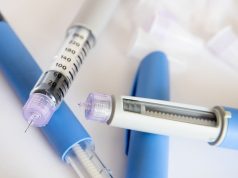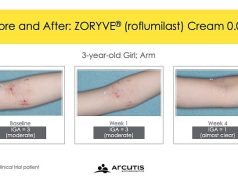New very abnormal results mostly occur after DMARD dose increase, often already known or suspected
By Elana Gotkine HealthDay Reporter
TUESDAY, Aug. 26, 2025 (HealthDay News) — For patients with rheumatoid arthritis (RA) using disease-modifying antirheumatic drugs (DMARDs), long-term routine laboratory toxicity monitoring (lt-RLTM) indicates that most very abnormal laboratory results are already known or suspected, according to a study published online Aug. 26 in the Annals of Internal Medicine.
Evy Ulijn, M.D., from Sint Maartenskliniek in Nijmegen, Netherlands, and colleagues examined the cumulative incidence of abnormal and very abnormal laboratory monitoring results among patients with RA after at least six months of DMARD use in a retrospective cohort study conducted in the Netherlands from July 2008 to April 2020. The probabilities of abnormal results were calculated for alanine aminotransferase, the estimated glomerular filtration rate (eGFR), hemoglobin, leukocyte count, and platelet count.
The analyses included 4,774 patients with RA who underwent 59,555 lt-RLTM test sets over 18,383 patient-years. The researchers found that for the five tests, the cumulative probabilities of very abnormal laboratory results varied from 0.2 percent for leukocyte count to 6.6 percent for eGFR at two years and from 0.3 to 11 percent, respectively, at five years. The 449 new very abnormal results mainly occurred after a dose increase (6.5 percent), were often already known or suspected (47.7 percent), were thought to be unrelated to DMARD use (24.1 percent), or did not lead to action (35.8 percent). For less serious abnormal results, the incidence was higher, reaching 39 percent for eGFR <60 mL/min/1.73 m2 and 61 percent for hemoglobin levels below 7.5 mmol/L or below 8 mmol/L for women and men, respectively.
“The long-standing practice of performing frequent lt-RLTM in all patients with RA using DMARDs should be reconsidered, as our findings call into question the value of nontargeted monitoring,” the authors write.
Copyright © 2025 HealthDay. All rights reserved.








